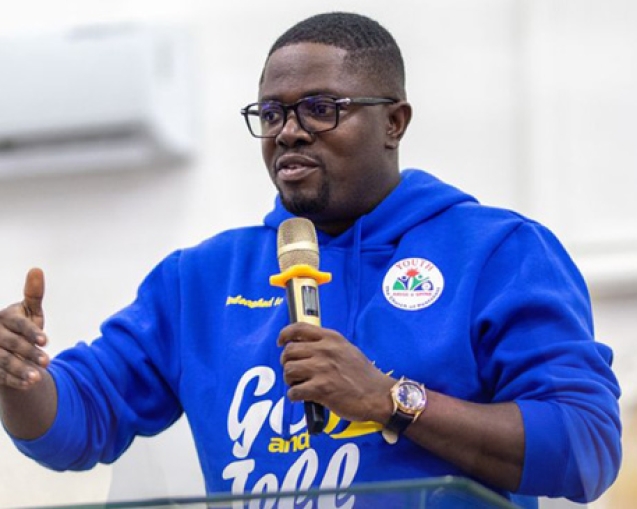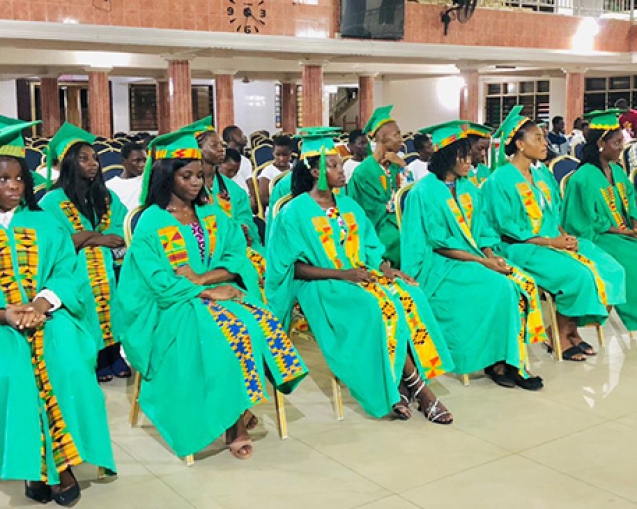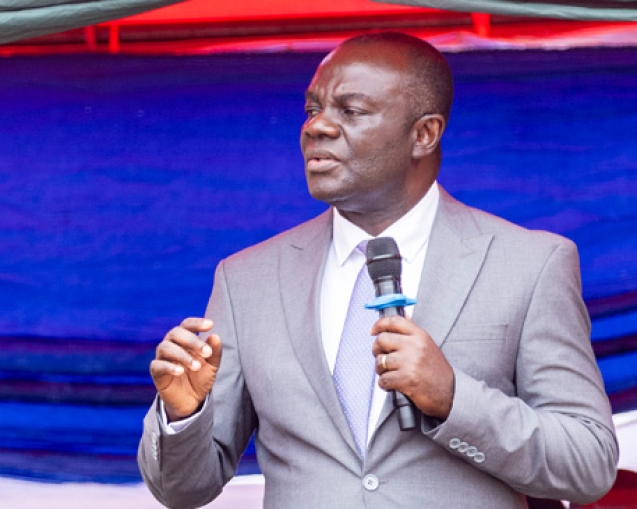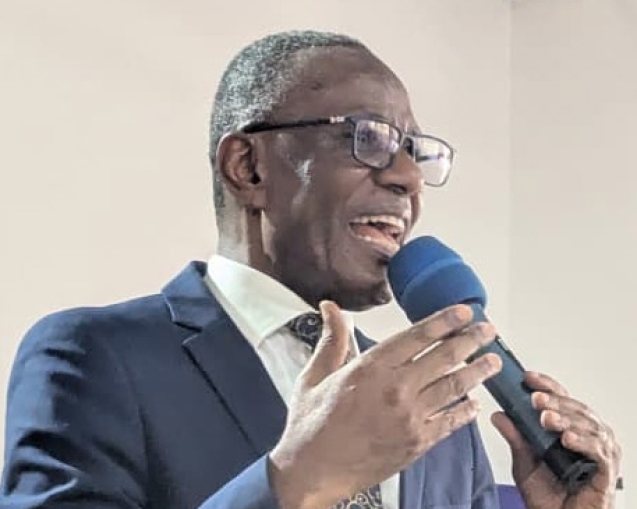In a moment charged with divine clarity, the Vice Chancellor of Pentecost University, Apostle Prof. Agyapong-Kodua lifted the timeless hymn, “Hark, the Voice of Jesus Calling,” following Apostle Prof. Tsekpoe’s powerful presentation on “Reshaping Generations.” There was a shift in atmosphere as we recognised God’s reminder of a long-neglected command — a call not only to the mission field but to generations. Yet again, we were reminded that this is a timeless charge that calls for a revitalised sense of purpose and conviction. This profound reminder set the stage for the James McKeown Memorial Lecture, an annual gathering that honors the legacy of the Church of Pentecost’s founder while shaping contemporary thought on faith and mission.
The 2025 James McKeown Lecture, held on November 7 at the Pentecost Convention Centre (Egyir Paintsil Auditorium), once again honored the legacy of Ps. James McKeown and highlighted Pentecostalism’s role in global mission. Under the theme “Reshaping Cultures, Generations and Systems,” the event drew theologians, clergy, and church leaders, emphasising how Pentecostal values continue to shape faith and communities and inspire transformative change worldwide.
The 2025 James McKeown Lecture theme, tied to the Possessing the Nations agenda, urged Christians to see every sphere, culture, generation, and system as mission fields. It called believers to influence society, drive research, and act as agents of generational and systemic transformation.
THE CONCEPT OF RESHAPING GENERATIONS
Apostle Prof. Christian Tsekpoe’s lecture on Reshaping Generations emphasised that, beyond cultures and systems, generations must be transformed as vital mission fields. He warned of the “Tragedy of Generations,” where people arise without knowledge of God (citing Joshua 2:7–10), and urged Christians to preserve faith and fulfill the “Go Ye” mandate, starting from their own Jerusalem.
Apostle Prof. Tsekpoe noted that today’s church growth stems from the hard work of Ps. McKeown and the early fathers, reminding us that current efforts are seeds for future fruit. He illustrated the “Tragedy of Generations” through church history — from its birth in Jerusalem with 120 believers, rapid expansion to thousands, and eventual shift of vibrancy from Jerusalem to the Greco-Roman world, then to Rome, Western Europe, and North America. Each shift brought growth in new regions but decline in former centers, leaving once-thriving churches, like Ephesus, in ruins.
Apostle Prof. Tsekpoe stressed that Africa, now seen as Christianity’s center, bears a heavy responsibility to preserve the faith amid global decline. While Europe’s Christian population fell sharply from 98% in 1900 to much lower by 2000, Africa’s share is projected to reach 50% by 2050. Yet worldwide, Christianity has shrunk from 33% in 1900 to 30.5% in 2000 — showing that as the faith grows in one region, it diminishes in another, a recurring “shifting center” challenge.
THE GAP IN MISSIOLOGY
Missions have long focused on foreign fields, while generations are treated as ministries rather than mission fields. Apostle Prof. Tsekpoe emphasised that this neglect of “generational missions” leads to imposing outdated methods — like the biblical example of pouring old wine into new wineskins — which poses the risk of alienating children, youth, and other groups instead of engaging them as vital mission fields.
Matthew 28:19–20 and Acts 1:8 are often misinterpreted and misunderstood as purely geographical mandates. Apostle Prof. Tsekpoe clarified that the Great Commission is both horizontal (to nations) and vertical (to generations), preserving the gospel’s vitality across time. Acts 1:8 places a strong emphasis on maintaining the fire in Jerusalem while expanding to Judea, Samaria, and beyond — adding centers rather than shifting them. Mathematically, this means multiplication without displacement. Thus, the gospel’s center must remain intact even as it spreads.
The decline in the global Christian population reflects a critical gap: reaching and sustaining generations. Had Jerusalem, Asia Minor, the Western world, and other revival centers preserved the faith across generations, today’s disturbing decline would not be as evident. Generational missions are therefore essential to maintaining Christianity’s vitality.
THE INTERGENERATIONAL MISSIONS APPROACH TO RESHAPING GENERATIONS
This approach ensures that there is meaningful engagement between older and younger generations, ensuring the transmission of faith through culturally relevant interaction. Here, the older members intentionally empower the younger generation with leadership opportunities, while the younger generation shows respect and attentiveness to their elders
Pastor James McKeown exemplified this model by incorporating indigenous forms of worship and entrusting local leaders with responsibility during his missionary activities in the Gold Coast. One might ask: if McKeown were present in this generation, would he have permitted certain generational dynamics to endure? The answer is undoubtedly yes. He would have affirmed that younger generations must be given the space to make decisions while being guided through questioning and accountability. Such a balance strengthens the church and safeguards the faith for the future.
CONCLUSION
Dear reader, the call before us is not confined to distant mission fields but extends to generations — our very own Jerusalem. Therefore, rise and minister faithfully to those entrusted to you. Guard your Jerusalem, preserve the faith where you are planted, and ensure that the flame of devotion never dies.
Written by Deacon Ernest Ofori Baah (Bible Studies Coordinator, PENSA-UPSA)


















